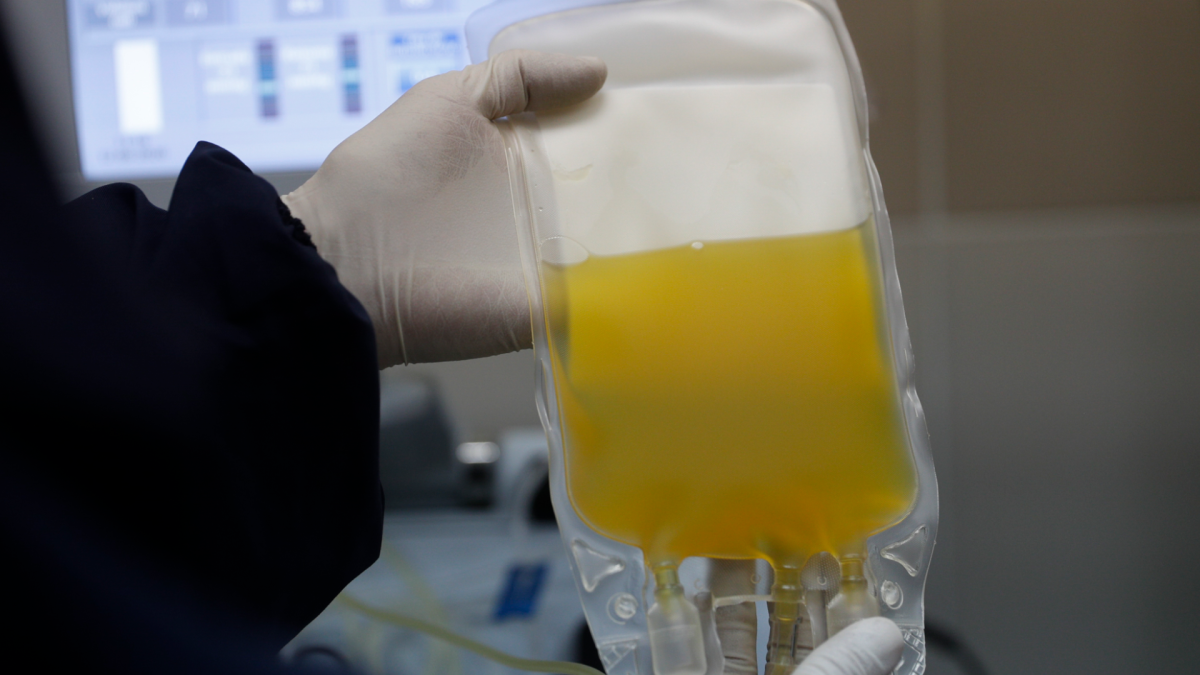A McMaster University professor investigating the use of convalescent plasma as a treatment to reduce the effects of COVID-19 in infected patients says a major study is suggesting it may not work.

The study published in the journal Nature Medicine on Thursday suggests the deployment of blood plasma rich in antibodies from recovered COVID-19 patients “is extremely variable” and may actually create “more serious adverse events.”
“It has been thought that the blood plasma of COVID-19 survivors would help those seriously ill from the virus but, unfortunately, it does not,” said Donald Arnold, co-principal investigator of the study, hematologist and professor of medicine at McMaster University.
“We are cautioning against using convalescent plasma to treat COVID-19 hospitalized patients, unless they are in a closely monitored clinical trial.”
At the height of the pandemic, then-U.S. president Donald Trump gave emergency authorization to use convalescent plasma to treat COVID-19 patients, referring to it as “a breakthrough.”
Some researchers at the time believed using the antibody-rich plasma would provide benefits to those suffering the most severe effects of a coronavirus infection.
In late August, the World Health Organization alerted the medical community that using blood plasma from COVID-19 survivors to treat other patients is still considered an experimental therapy.
The statement came just days after the U.S. Food and Drug Administration (FDA) authorized “emergency use” of the treatment under its special powers amid a public health crisis. The designation, however, does not mean the FDA considers the treatment safe and effective.
A Canadian-led research team found that using convalescent plasma could actually increase the need for oxygen and worsen respiratory failure in a patient. It also found that the rate of fatal incidents was not any different from a group of patients who were not receiving the blood.
An additional discovery in the research has also revealed that convalescent plasma had variable antibody content and even non-functional antibodies that are potentially harmful.
Co-principal investigator Philippe Bégin, an associate professor of the University of Montréal, said harm may come from the transfusion of convalescent plasma containing poorly functioning antibodies.
“One hypothesis is that those dysfunctional antibodies could compete with the patient’s own antibodies and could disrupt the mounting immune response. This phenomenon has been observed previously in animal models and in human studies of HIV vaccines.”
The $5.5-million clinical trial was based on studies of 940 patients at 72 hospitals in Canada, the United States and Brazil.










Comments